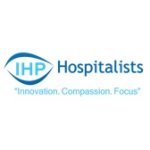Job Summary
Job Description
Are you a highly skilled and experienced Emergency Medicine physician seeking a rewarding locums opportunity? We are currently seeking a dedicated and qualified emergency medicine provider to join our team in Philadelphia, Pennsylvania.
Qualifications:
To be considered for this opportunity, candidates must meet the following criteria:
- Residency trained in Emergency Medicine
- ABEM Board Certified
- Minimum of 2 years of clinical experience in Emergency Medicine
- Research experience is highly desirable
Exception: EM trained fellows who possess a minimum of two years of experience may also be considered for this position.
About Us:
Our organization is dedicated to providing high-quality emergency medical care and is associated with an ACGME 3-Year Residency Program in Emergency Medicine. While the organization and location details have been omitted for confidentiality, we are committed to excellence in healthcare delivery and continuous improvement.
Facility Highlights:
- ACGME 3-Year Residency Program in Emergency Medicine
- Over 50,000 patient visits annually
- Strong ED Physician and PA/NP coverage
- Recently renovated 34-Bed ED
- Scribes with plans to convert to EPIC EMR within one year
- On-site Cath-Lab
- Chest Pain Center
- Certified Primary Stroke Center
Job Responsibilities
Emergency Medical Care:
Evaluate and diagnose patients who present with various medical conditions, including trauma, injuries, illnesses, and critical emergencies.
Initiate and provide immediate medical treatment, resuscitation, and stabilization of patients in life-threatening situations.
Order and interpret diagnostic tests, such as X-rays, CT scans, and laboratory tests, to assist in diagnosis and treatment planning.
Treatment and Procedures:
Administer appropriate medications and treatments based on the patient's condition, medical history, and established protocols.
Perform medical procedures and interventions as needed, including wound care, suturing, intubation, and chest tube placement.
Patient Assessment:
Conduct thorough physical examinations and medical histories to gather relevant information for accurate diagnosis and treatment.
Continuously monitor patients' vital signs and response to treatment, making adjustments as necessary.
Collaboration and Communication:
Collaborate with nursing staff, other physicians, specialists, and healthcare professionals to ensure coordinated and effective patient care.
Communicate treatment plans, diagnoses, and patient progress to patients and their families in a clear and compassionate manner.
Emergency Department Management:
Oversee the smooth operation of the ED, ensuring adequate staffing, resource availability, and adherence to safety protocols.
Assist in triaging patients based on the severity of their conditions and allocating resources accordingly.
Documentation:
Maintain accurate and timely electronic medical records, documenting patient assessments, diagnoses, treatments, and follow-up care.
Continuous Learning:
Stay updated on the latest medical advancements, guidelines, and best practices in emergency medicine through ongoing education and training.
Compliance and Ethics:
Adhere to ethical and legal standards in healthcare, including patient confidentiality and informed consent.
Ensure compliance with all relevant regulatory requirements and quality improvement initiatives.
Qualifications
Residency training in Emergency Medicine.
Board certification in Emergency Medicine (ABEM or equivalent).
State medical licensure and privileges to practice emergency medicine.
Strong clinical judgment, problem-solving skills, and the ability to work effectively under pressure.
Excellent communication and interpersonal skills.
Commitment to patient safety, quality care, and continuous improvement.

